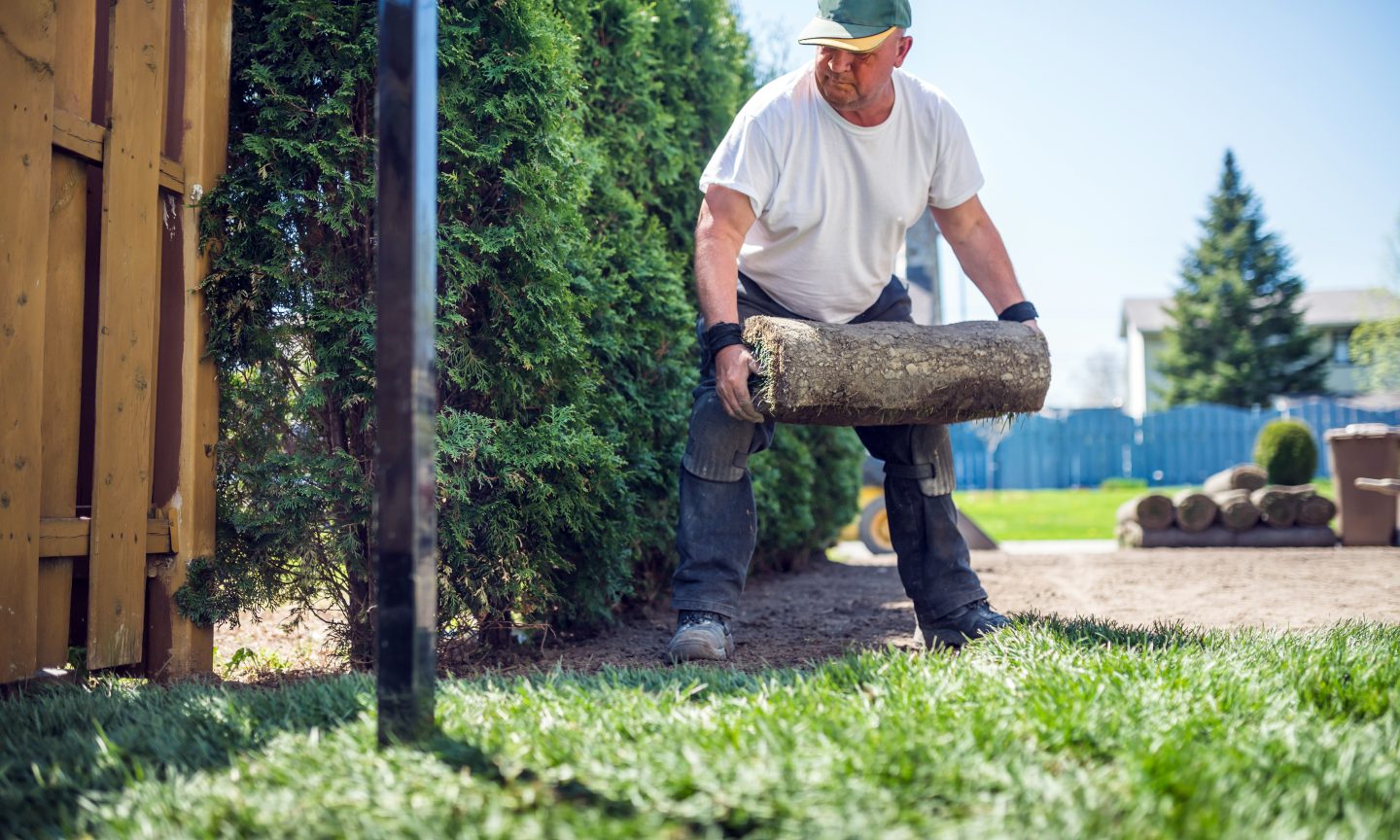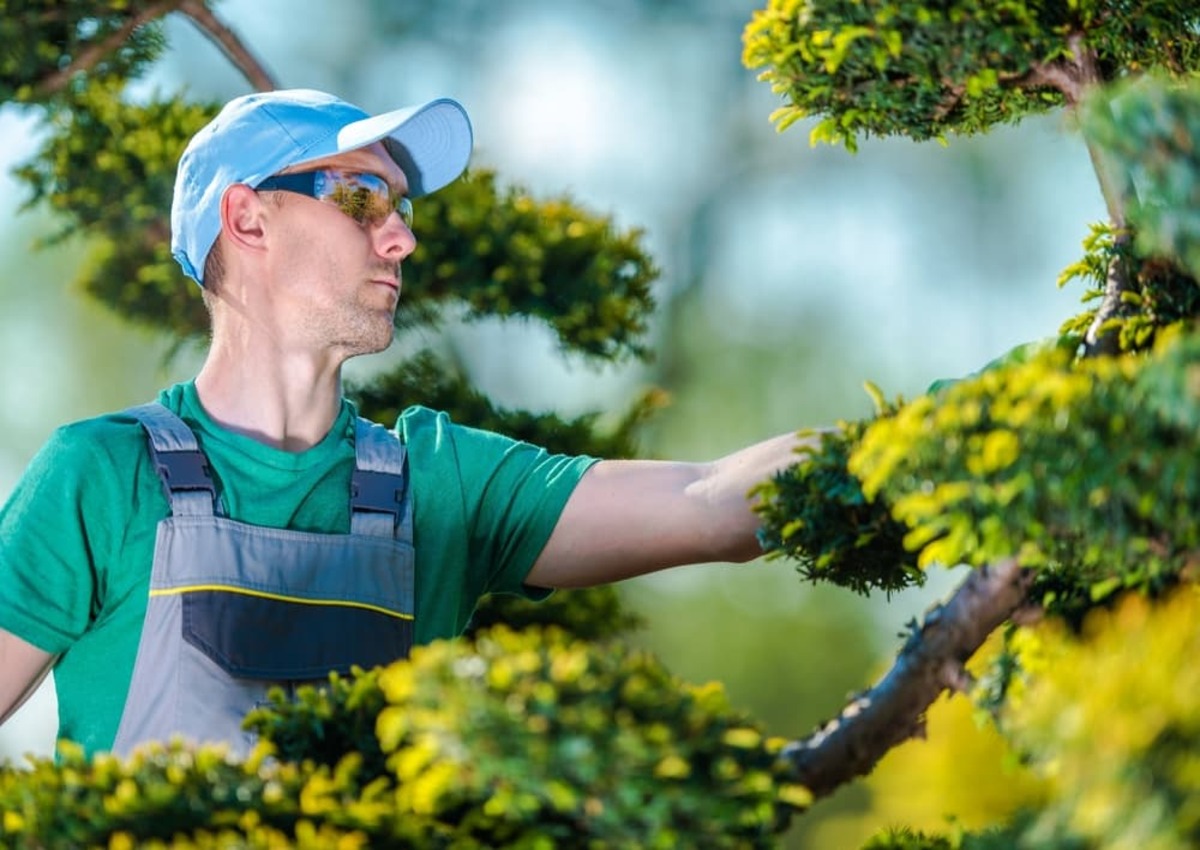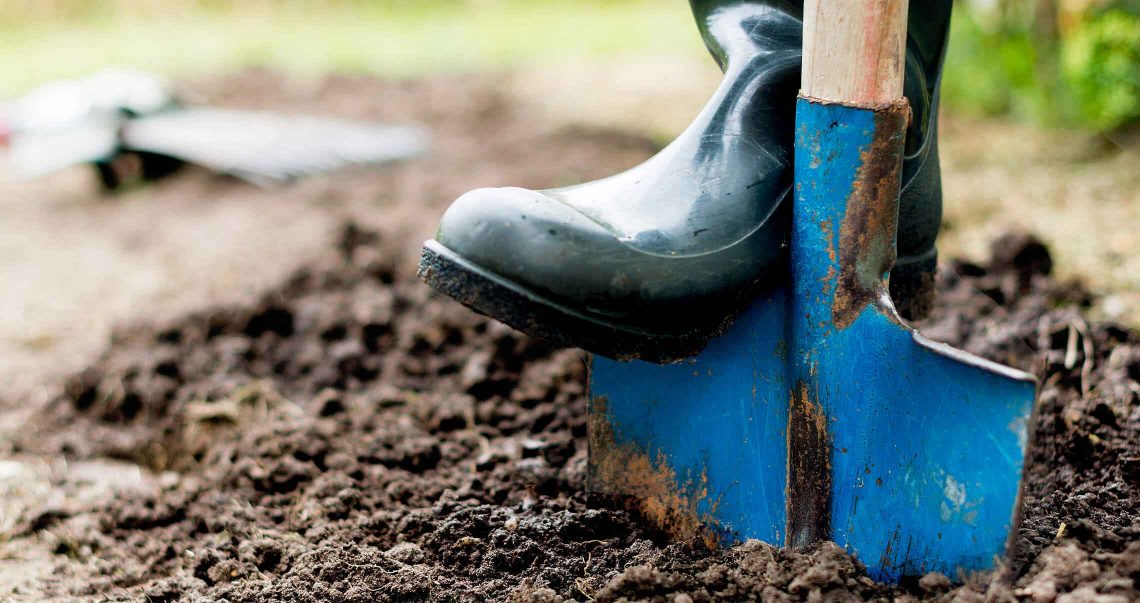Home>Gardening Basics>Getting Started>What Licenses Are Needed To Start A Landscaping Business


Getting Started
What Licenses Are Needed To Start A Landscaping Business
Modified: January 22, 2024
Find out the essential licenses required for starting a landscaping business. Get expert advice on getting started in the industry.
(Many of the links in this article redirect to a specific reviewed product. Your purchase of these products through affiliate links helps to generate commission for Chicagolandgardening.com, at no extra cost. Learn more)
Table of Contents
Introduction
Starting a landscaping business can be a rewarding venture for those with a passion for outdoor work and a love for nature. Whether you’re planning on offering design services, lawn maintenance, or tree care, turning your passion into a profitable business requires more than just a green thumb. One essential aspect of starting any business is obtaining the necessary licenses and permits.
Before diving into the world of landscaping, it’s important to understand the different types of licenses and permits you may need to operate legally and efficiently. From general business licenses to specialized licenses for landscape contractors, pesticide applicators, irrigation specialists, and tree care professionals, each license is designed to ensure that your business adheres to industry standards and complies with local regulations.
In addition to licenses, there are also environmental permits that may be required if your landscaping activities impact natural resources or protected areas. These permits focus on protecting the environment and may involve considerations such as water usage, soil erosion prevention, and conservation efforts.
Lastly, safety and insurance requirements should not be overlooked. As a landscaping business owner, you are responsible for the well-being of your employees, clients, and their properties. Proper safety training and insurance coverage are crucial to protect your business and maintain a high level of professionalism.
In this article, we will explore the various licenses and permits you may need to start a landscaping business. By understanding and obtaining the necessary credentials, you can build a solid foundation for a successful and legally compliant venture.
Business License
A business license is a fundamental requirement for starting any type of business, including a landscaping company. This license is obtained from the local government or municipality and grants you the legal authority to operate within your designated jurisdiction.
The process of obtaining a business license may vary depending on your location. Typically, you will need to fill out an application form, pay the required fee, and provide some basic information about your business, such as its name, address, and ownership structure. Some municipalities may also require additional documentation, such as proof of insurance or compliance with zoning regulations.
Having a valid business license not only ensures the legality of your operations, but it also conveys credibility and trustworthiness to potential clients. It demonstrates that you are a legitimate and professional business owner committed to operating within the parameters of local regulations.
Before applying for a business license, it is advisable to check with your local government or municipality to familiarize yourself with any specific requirements or restrictions that apply to landscaping businesses. This will help streamline the application process and ensure that you are fully compliant with all applicable regulations.
Remember that a business license is typically renewed annually or biennially, depending on your location. Be sure to keep track of the expiration date and renew your license on time to avoid any interruptions in your business operations.
Landscape Contractor License
A landscape contractor license is a specialized license that focuses specifically on the landscaping industry. This license is required in many jurisdictions and is designed to ensure that individuals or companies engaging in landscaping work have the necessary skills and knowledge to perform the job safely and effectively.
The requirements for obtaining a landscape contractor license may vary depending on your location. Typically, you will need to meet certain criteria, such as having a certain amount of experience in the landscaping field or passing a competency exam. Some jurisdictions may also require proof of liability insurance or a bond to protect clients and the general public in case of any damages or disputes.
Obtaining a landscape contractor license not only demonstrates your professionalism and expertise but also provides assurance to clients that you have the necessary qualifications to perform high-quality landscaping work. It also helps to level the playing field in the industry, as licensed contractors are often held to higher standards of ethical conduct and workmanship.
In addition to licensing requirements, it is important to stay updated on the latest industry trends and best practices. Continuing education and training can enhance your skills, keep you informed about new technologies and techniques, and help you stay competitive in the landscaping market.
Keep in mind that maintaining a landscape contractor license typically involves renewal and periodic inspections or assessments to ensure ongoing compliance with industry standards. It is important to follow all requirements and maintain a good standing with the licensing body to avoid any potential penalties or license revocations.
Remember to check with your local licensing board or regulatory authority to understand the specific requirements for obtaining a landscape contractor license in your area. By obtaining this license, you can establish yourself as a professional and trustworthy landscaping service provider, giving your clients confidence in your abilities and expertise.
Pesticide Applicator License
A pesticide applicator license is a crucial requirement for any landscaping business that involves the use of pesticides, herbicides, or other chemical substances to control pests, weeds, or diseases. This license ensures that the application of these substances is done safely, following industry standards and environmental regulations.
The process of obtaining a pesticide applicator license varies by jurisdiction, but generally, it involves passing an exam that assesses your knowledge of pesticide safety, handling, and application techniques. Some areas may also require proof of experience or completion of training courses related to pesticide use and management.
Having a pesticide applicator license demonstrates your commitment to responsible pesticide use and your understanding of the potential risks and environmental impacts associated with these chemicals. It also ensures that you can legally purchase, handle, and apply pesticides within the parameters set by regulatory agencies.
It’s important to note that different categories or classes of pesticide applicator licenses may exist, depending on the types of pesticides and application methods you plan to use. For example, there may be separate licenses for general pesticide application, aerial application, or commercial indoor pest control. Make sure to understand the specific requirements for the type of pesticide application you will be engaged in, to ensure you obtain the appropriate license.
Furthermore, maintaining a pesticide applicator license requires ongoing education and training to stay updated on the latest developments and safety practices in pesticide use. This ensures that you are using the chemicals responsibly, minimizing any potential harm to the environment, clients, and public health.
It’s crucial to familiarize yourself with the regulations and restrictions regarding pesticide use in your area. This includes understanding the labeling requirements, restricted-use pesticides, and any special provisions or prohibitions that may apply to certain locations, such as schools or public parks.
By obtaining a pesticide applicator license, you demonstrate your commitment to safety, environmental stewardship, and providing quality landscaping services that align with industry best practices. It not only helps you comply with legal requirements but also enhances your reputation as a trustworthy and responsible landscaping professional.
Irrigation License
An irrigation license is essential for any landscaping business that offers irrigation system installation, maintenance, or repair services. This license ensures that you have the necessary skills and knowledge to design and install efficient irrigation systems that minimize water waste and comply with local regulations.
The requirements for obtaining an irrigation license may vary depending on your jurisdiction. In some areas, you may need to pass a competency exam that evaluates your understanding of irrigation system components, water efficiency techniques, and local regulations. Other requirements may include demonstrating a certain level of experience in the field or completing specific training courses.
By obtaining an irrigation license, you demonstrate your expertise in designing and installing irrigation systems that conserve water and promote healthy plant growth. It also assures clients that you are knowledgeable about local water conservation regulations and ensure compliance while providing irrigation services.
In addition to installation, an irrigation license may also cover maintenance and repair activities. This is particularly important as regular maintenance and timely repairs are crucial for the optimal performance of irrigation systems and the prevention of water waste.
It’s important to note that understanding local regulations regarding water usage is essential when obtaining an irrigation license. Some jurisdictions may have specific requirements for irrigation system installation, timing, or water flow restrictions. By complying with these regulations, you can demonstrate your commitment to responsible water management and environmental sustainability.
Continuing education and staying updated on the latest advancements in irrigation technology and water conservation practices are essential for maintaining an irrigation license. This ensures that you are providing the most efficient and effective solutions to your clients, using cutting-edge techniques that minimize water usage while maximizing the health and beauty of their landscapes.
Obtaining an irrigation license not only adds professionalism and credibility to your landscaping business but also sets you apart from competitors who may not have the necessary qualifications. It assures clients that you have the expertise to design, install, and maintain irrigation systems that are tailored to their specific needs, leading to better customer satisfaction and long-term business success.
Tree Care License
A tree care license is necessary for landscaping businesses that offer tree care services such as pruning, trimming, removal, or healthcare treatments. This license ensures that you have the knowledge, skills, and expertise to properly care for trees while adhering to industry standards and safety guidelines.
The requirements for obtaining a tree care license may vary depending on your jurisdiction. In some areas, you may need to pass a competency exam that evaluates your understanding of tree biology, proper pruning techniques, disease identification, and safe tree removal practices. Other requirements may include demonstrating a certain level of experience or completing specific training programs related to tree care.
By obtaining a tree care license, you show your commitment to providing professional and responsible tree care services. It demonstrates to clients that you are qualified to assess the health and provide essential treatment to their trees, as well as safely and efficiently handle tree removal when necessary.
Tree care encompasses a wide range of tasks, from pruning and shaping trees to diagnosing and treating diseases or infestations. A tree care license ensures that you have the knowledge and expertise to perform these tasks correctly, promoting the health and longevity of the trees under your care.
It is also important to stay updated on the latest techniques and industry developments in tree care. Continuing education and participation in professional workshops or conferences can further enhance your skills and knowledge in tree care, allowing you to provide the best possible services to your clients.
Additionally, having a tree care license emphasizes your commitment to following safety protocols and best practices when working with trees. This is crucial given the potential risks involved in tree care activities, such as working at heights or using heavy machinery. By adhering to safety guidelines and using proper equipment, you can protect yourself, your employees, and the surrounding property during tree care operations.
Remember to check with your local licensing board or regulatory authority to understand the specific requirements for obtaining a tree care license in your area. By obtaining this license and staying current with industry standards, you can showcase your expertise and dedication to providing top-notch tree care services.
Environmental Permits
Environmental permits are essential for landscaping businesses that may impact natural resources or protected areas during their operations. These permits ensure that your business activities are in compliance with environmental regulations and help protect the ecosystem and local habitats.
The types of environmental permits required may vary depending on the nature of your landscaping services and the specific location. Some common permits include those related to water usage and conservation, erosion control, protected wildlife or plant species, and wetland protection.
For example, if your landscaping services involve irrigation or the use of water features, you may need permits related to water use and conservation. These permits may involve monitoring and reporting water usage, implementing water-saving techniques, or complying with specific restrictions on water consumption.
On the other hand, if your operations involve working in wetland areas, you may need permits related to wetland protection. These permits ensure that you are following guidelines to minimize disturbance to the wetland environment and protect the flora and fauna that inhabit it.
Additionally, if your work involves the management of protected wildlife or plant species, you may need permits to ensure you are operating within legal boundaries, adhering to regulations regarding their protection and conservation.
It is important to research and understand the specific environmental permits that may be required in your area. Contact your local environmental agency or regulatory body to determine the permits that are relevant to your landscaping activities.
Obtaining environmental permits not only demonstrates your commitment to sustainable and responsible business practices but also helps cultivate trust with clients and the community. It shows that you prioritize environmental stewardship and are dedicated to minimizing any negative impacts of your business operations.
Compliance with environmental permits often involves regular reporting, monitoring, and record-keeping. Be sure to stay informed about any updates or changes to the regulations associated with your permits to ensure ongoing compliance.
By obtaining and maintaining the necessary environmental permits, you can operate your landscaping business in harmony with the environment, contribute to the preservation of natural resources, and build a reputation as an environmentally conscious and responsible service provider.
Safety and Insurance Requirements
Ensuring safety and having proper insurance coverage are crucial aspects of running a landscaping business. These requirements help protect your employees, clients, and your business from potential risks and liabilities.
One of the primary safety considerations in the landscaping industry is proper training for your employees. This includes providing instruction on using equipment safely, following safety protocols during job site setup and cleanup, and understanding how to identify and mitigate potential hazards. Regular safety meetings and ongoing training are essential for maintaining a safe working environment.
It is also important to have the necessary safety equipment readily available for your employees. This may include personal protective equipment (PPE) such as gloves, safety glasses, hard hats, and high-visibility clothing. Additionally, ensuring that all equipment is properly maintained and regularly inspected can help prevent accidents and injuries.
Aside from safety precautions, having comprehensive liability insurance is essential for protecting your business from any unforeseen accidents or damages. General liability insurance can cover bodily injury, property damage, and advertising injury claims that may arise in the course of your operations. This not only safeguards your assets and reputation but also provides peace of mind to your clients.
In addition to general liability insurance, you may also need specific coverage depending on the scope of your landscaping services. For instance, if you operate vehicles for your business, commercial auto insurance is necessary to protect against any accidents or damage that may occur on the road. Worker’s compensation insurance should also be considered to provide coverage for injuries sustained by your employees while on the job.
Before starting your business, consult with an insurance professional to understand the specific insurance requirements for your landscaping operations. They can help you tailor your coverage to meet your unique needs while ensuring compliance with legal and industry standards.
Remember, safety should be an ongoing priority for your landscaping business. Regularly review and update your safety policies and procedures to address any changes in regulations or industry best practices. Encourage a safety culture among your team, where everyone is responsible for maintaining a safe working environment.
By prioritizing safety and having the appropriate insurance coverage, you can protect your business, employees, and clients while fostering a professional and trustworthy reputation in the landscaping industry.
Conclusion
Starting a landscaping business requires more than just a love for nature and a green thumb. It involves obtaining the necessary licenses and permits to operate legally, ensuring compliance with industry standards and local regulations. By understanding and acquiring the appropriate credentials, you can establish a solid foundation for success and build trust with your clients.
Obtaining a business license is the first step in setting up your landscaping business. This license grants you the legal authority to operate within your designated jurisdiction and demonstrates your commitment to professionalism.
Specialized licenses such as landscape contractor, pesticide applicator, irrigation, and tree care licenses are essential for offering specific services. These licenses ensure that you possess the necessary skills and knowledge to deliver high-quality work while adhering to industry standards and safety guidelines.
Environmental permits are another critical aspect to consider, especially if your landscaping activities impact natural resources or protected areas. Complying with these permits helps protect the ecosystem and showcases your commitment to responsible environmental practices.
Safety and insurance requirements are of utmost importance for your landscaping business. Ensuring the safety of your employees and having proper insurance coverage safeguards your business, clients, and assets in case of accidents or damages.
Remember to research and consult with relevant agencies or professionals to understand the specific requirements and regulations in your area. Stay updated on industry trends, continue learning, and prioritize safety to maintain your licenses and provide exceptional services to your clients.
By navigating the licensing and permit landscape, establishing safety protocols, and securing proper insurance, you can position your landscaping business for success while building a reputation as a reputable and trusted service provider in the industry.










